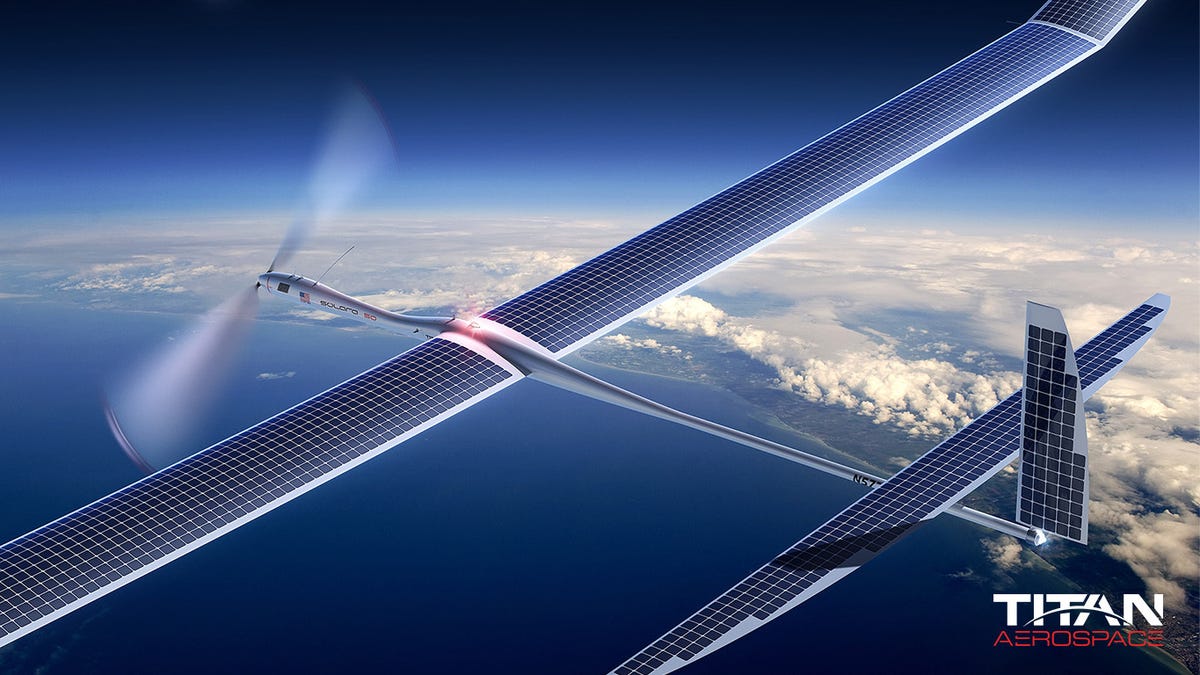Facebook reportedly in talks for drone maker Titan Aerospace
Social-networking giant looking at the company's solar-powered high-altitude drones to deliver Internet access, according to TechCrunch.

Facebook is in talks to acquire Titan Aerospace, the maker of a solar-powered high-altitude drone that can stay aloft for five years, according to a TechCrunch report.
The acquisition would reportedly further the efforts of Internet.org, a coalition of mobile technology companies spearheaded by Facebook that is working to bring Internet access to the 5 billion or so people around the world without it. The acquisition is valued at $60 million, a source "with access to information about the deal" told TechCrunch.
CNET has contacted Facebook and Titan Aerospace for comment and will update this report when we learn more.
Facebook is interested in dispatching some 11,000 unmanned aerial vehicles over parts of the globe that lack Internet access, beginning in Africa, according to the report. The company is said to be especially interested in the Solara 60, a featherweight aircraft built of composite materials that the New Mexico-based company claims can maintain an altitude of 65,000 feet for years without refueling, thanks to thousands of solar cells blanketing the aircraft.
The plane, which was unveiled at the Association for Unmanned Vehicle Systems International conference last August, can carry up to 250 pounds of gear, such as wireless communications equipment that could help fulfill the goal of Internet.org -- providing a set of basic services such as messaging, weather, food prices, Wikipedia, and Facebook, of course, to anyone regardless of whether they pay for a data connection.
While the use of drones has captured the imagination of many in the tech community for merchandise delivery, the unmanned aircraft could deliver Internet access to a wide swath of people lacking reliable service without the expense of building localized infrastructure. Other companies have floated the idea of taking to the skies to provide Internet access to developing regions, perhaps most notably Google, which plans to use souped-up weather balloons to provide Wi-Fi to remote parts of the world.

